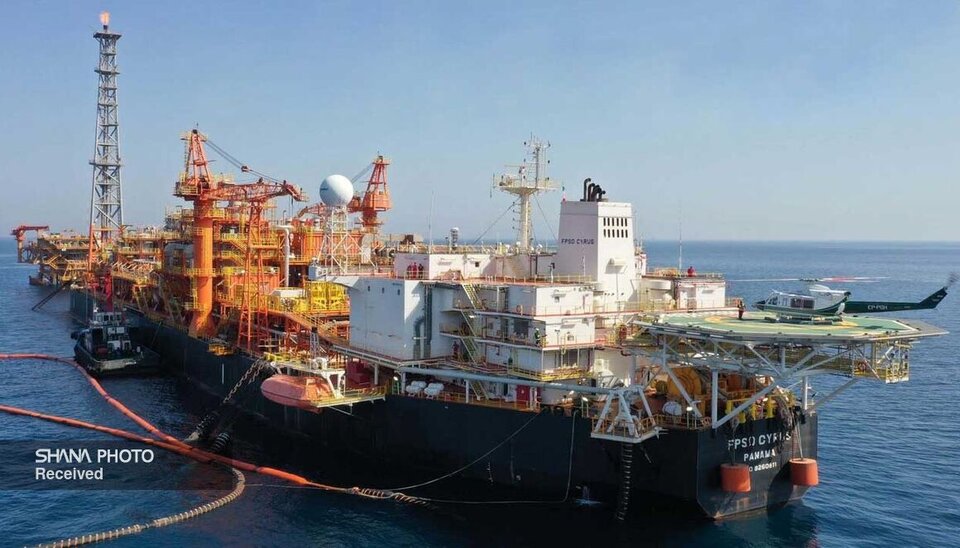Shahrad Kokabi, speaking about the Aug. 3 specialized meeting on the International Maritime Organization’s (IMO) carbon reduction requirements, said this is the Oil Ministry’s first official step toward practical involvement in maritime decarbonization. It represents the starting point for technology-driven projects leveraging Iran’s scientific capabilities.
Deputy Oil Minister Omid Shakeri emphasized that international trade development depends on adherence to modern maritime transport standards, indicating that decarbonization is not merely a technical issue but a strategic pathway to determine the future of Iran’s fleet, fuel type, market share, and technological advancement.
Kokabi cited remarks by Ehsan Taqizadeh-Nejad, director general of OPEC and international organizations at the Oil Ministry, on global maritime emission reduction mandates. He noted that while the U.N. Climate Change Convention sets broad emission targets, practical implementation falls under specialized bodies like the IMO for maritime and ICAO for aviation. Within this framework, the strictest and earliest standards directly impact oil-dependent nations.
Kokabi stressed that while these regulations pose economic and fleet challenges for Iran, they also present an opportunity to systematically redesign maritime transport and elevate the country’s position in the global value chain. They could spur voluntary clean infrastructure and technology development in other industries, strengthening Iran’s role in emerging carbon markets.
Need for an independent maritime decarbonization plan
Kokabi highlighted growing global carbon reduction pressures on oil-dependent nations and their direct threat to Iran’s maritime economy, urging Iran to develop and implement an independent maritime decarbonization plan based on national capabilities and geopolitical standing. He warned that without a comprehensive, holistic approach, such a plan would become merely ceremonial and fail to secure national interests.
He added that this ambitious plan aligns with the Supreme Leader’s policies and Iran’s 50-year vision to become a global scientific and technological hub—a goal Iran has historically demonstrated it can achieve, as seen during the 12-day war.
Legal, policy framework
Kokabi outlined key principles for the plan with referring to first legal and policy framework which must align with Iran’s maritime development policies and the Seventh Development Plan, while adhering to the principle of "common but differentiated responsibilities" in international commitments. It should also sync with Iran’s national climate change program and IMO requirements to ensure legal defensibility and policy coherence.
Technical, operational scope
Before transitioning to clean fuels, emission-reducing technologies—such as rotor sails and fuel efficiency systems—should be prioritized, with economic viability guiding investment decisions. During the transition, the plan must cover the entire supply chain, from production and storage to distribution and bunkering, as well as onboard storage, combustion optimization, and energy management technologies.
Quantitative goals, timeline
Targets include:
- Gradual reduction of fossil fuel supply based on regional demand and IMO timelines.
- Increasing clean fuels in Iran’s bunkering portfolio.
- Improving IMO technical standards for ship design and operations.
Progress checkpoints are set for 2030, 2040, and 2050 to assess and adjust strategies as needed.
Economic tools, carbon markets
Kokabi proposed:
- Carbon pricing and trading mechanisms under the GHG Protocol, allowing high-performing ships to trade excess reductions as "emission units" in international markets or transfer them to the IMO fund.
- This incentivizes fleet efficiency and leverages environmental mandates for economic gain.
Funding and resource allocation
A National Maritime Decarbonization Fund, linked to the Energy Exchange and development funds, would finance emission-reducing technologies, fleet upgrades, and infrastructure. Port incentives—such as fee discounts for low-emission ships—would accelerate the transition.
Existing legal frameworks, like the 2008 Maritime Industries Development and Support Law, could bolster the fund’s sustainability.
Diplomacy, international negotiation
Iran should:
- Present a legal-technical package at the IMO and OPEC to seek phased penalties or exemptions.
- Collaborate with oil-dependent and developing nations to adjust regulations or secure financial and technical support.
Governance, monitoring
An Independent Maritime Decarbonization Headquarters, under the Maritime Development Policy Coordination Council, would:
- Define key performance indicators.
- Establish an integrated Monitoring, Reporting, and Verification (MRV) system linked to customs and trade registries.
- Ensure transparency through regular progress reports.
Conclusion, national roadmap
Given the irreversible nature of maritime decarbonization mandates and their impact on Iran’s global market share, Kokabi called for the Maritime Development Policy Coordination Council to integrate decisions across executive, scientific, and industrial bodies.
A National Maritime Decarbonization Headquarters, leveraging the National Iranian Oil Company’s expertise in clean fuel development and R&D, would implement a phased and monitorable roadmap. Focus areas include:
- Energy converters.
- Storage and bunkering systems.
- Ship energy management.
This synergy between policy, clean technology, and the Oil Ministry’s technical-financial capacity would ensure Iran’s fair, competitive, and sustainable transition toward maritime development goals.


Your Comment